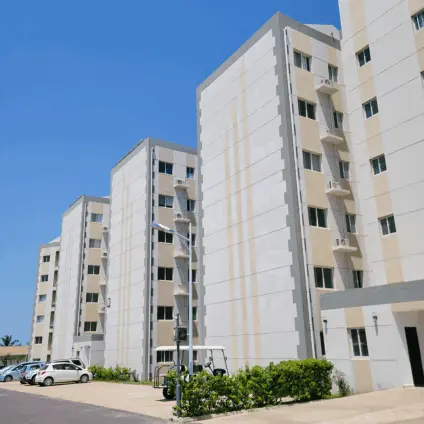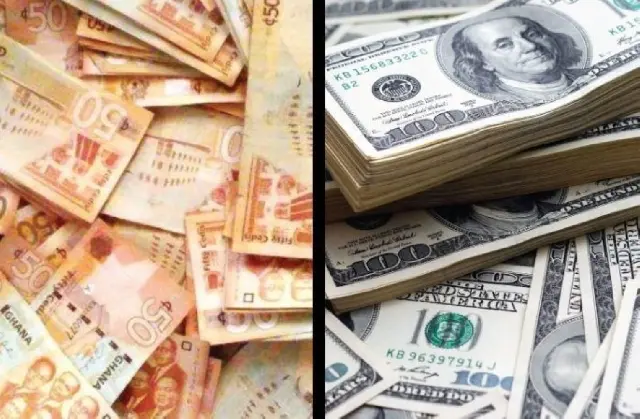The Ghanaian Cedi (GH₵) has seen its share of turbulence against the US dollar recently, sparking concerns about its stability. As Ghanaians watch the currency market with bated breath, analysts are scrambling to predict the next move. Prince Ellis Antsroe, CEO of Swift Petrotrade Group, offers a bold perspective, suggesting a significant strengthening of the Cedi is possible – potentially reaching GH₵8 to a dollar. However, this optimistic forecast hinges on a complex interplay of factors, primarily the lifting of US sanctions on Iran, coupled with the ever-present specter of geopolitical instability.
Antsroe’s analysis underscores the significant, although perhaps unwelcome, role that global oil and gold prices, as well as geopolitical tensions, play in dictating the fate of the Ghanaian currency. The possibility of a stronger Cedi, therefore, is deeply intertwined with events unfolding far beyond Ghana’s borders.
The Promise of Iran Sanction Relief
According to Antsroe, the key to a Cedi resurgence lies in the potential lifting of US sanctions on Iran. Speaking to Myjoyonline.com, he predicted that such a move could trigger a substantial drop in global crude oil prices, potentially plummeting to as low as $40 per barrel. This price reduction stems from the anticipated increase in oil supply as Iran re-enters the global market.
Lower oil prices, in turn, could trigger a surge in the price of gold. As oil becomes cheaper, investors often flock to gold as a safe-haven asset, driving up its value. Antsroe anticipates gold prices potentially soaring to $3,500 per ounce, or $123,500 per kg.
This surge in gold prices could bring a significant influx of US dollars into Ghana. As a major exporter of gold, Ghana stands to benefit from increased global demand. Strong exports translate to a greater supply of dollars within the country, naturally strengthening the Cedi. This influx of dollars, combined with stable import levels, forms the basis for Antsroe’s prediction of a GH₵8 to $1 exchange rate.
“If this happens, while Ghana’s imports remain at similar levels, the cedi could continue its rally against the dollar to regions of GH₵8 to a dollar and remain fairly stable so long as the prices of the commodities under consideration remain in similar ranges,” Antsroe stated.
Geopolitical Risks Cloud the Horizon
However, this optimistic scenario is far from guaranteed. Geopolitical risks, particularly the potential for military action in the Middle East, pose a significant threat to the stability of the oil and gold markets, and consequently, to the Ghanaian Cedi.
US intelligence reports, as cited by CNN and other news outlets, suggest that Israel is considering a potential strike on Iranian nuclear facilities. The uncertainty surrounding this possibility, whether Israeli leaders have reached a definitive decision or not, casts a long shadow over US-Iran negotiations and fuels regional volatility. Any such action could disrupt the delicate balance of global markets.
Antsroe believes that an Israeli attack would inevitably lead to increased volatility in the Middle East, a region crucial to global oil supply. This heightened instability would likely drive oil prices upward, contradicting the scenario that would lead to a stronger Cedi. Higher oil prices might then put downward pressure on gold prices, although geopolitical uncertainties could mitigate the extent of the decline.
Antsroe expects gold prices to fluctuate in such a situation, yet not fall drastically because of the geopolitical risks. This would mean that the Ghanaian Cedi’s strength may remain relatively stable, without the substantial rally to GH₵8 that is hoped for.
A Nation’s Economic Fate?
“A colossal look at the scenarios can perfectly make me ask myself if the success of Ghana is dependent on the happenings in the rest of the world,” Antsroe pondered. His concluding thought raises a crucial question about Ghana’s economic reliance on external factors. The potential for the Cedi to strengthen significantly is undeniably tied to events beyond Ghana’s direct control.
In conclusion, Prince Ellis Antsroe’s analysis paints a picture of both opportunity and risk for the Ghanaian Cedi. The potential for a surge to GH₵8 per dollar hinges on the lifting of Iran sanctions, a development that could reshape global oil and gold markets. However, geopolitical tensions, particularly the threat of Israeli action against Iran, introduce a significant element of uncertainty.
Ultimately, the strength of the Ghanaian Cedi appears deeply entwined with these global forces. As Ghana navigates its economic future, the critical question remains: how can the nation strike a balance between internal policies and external factors to achieve sustainable economic growth?
Image Source: MYJOYONLINE





















